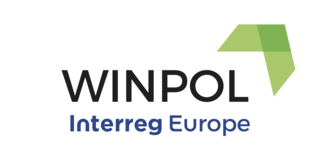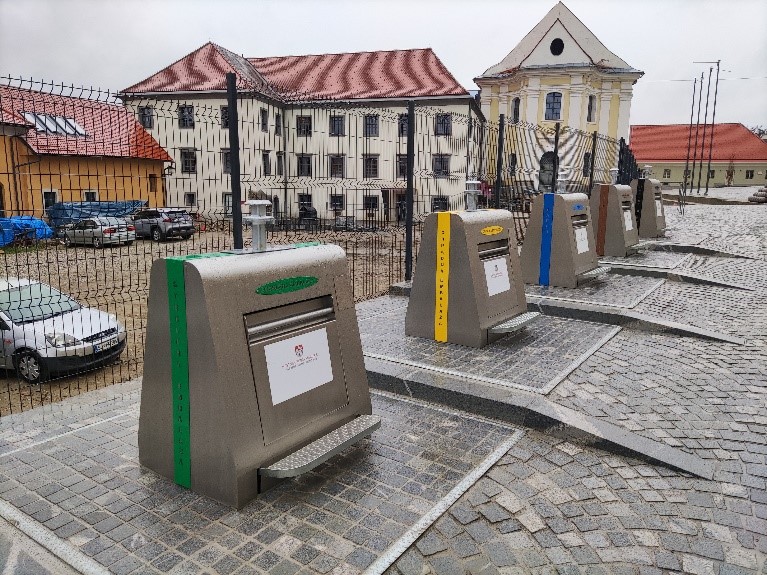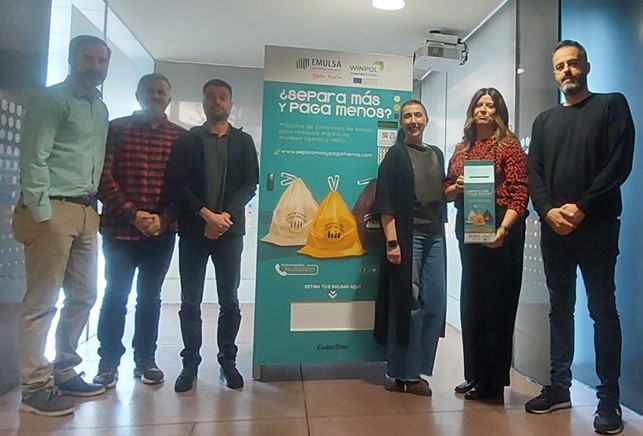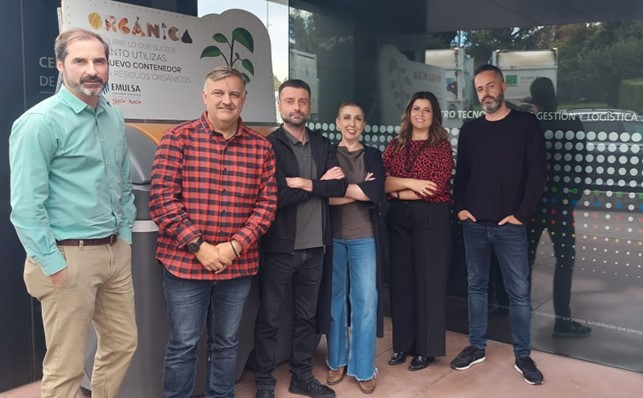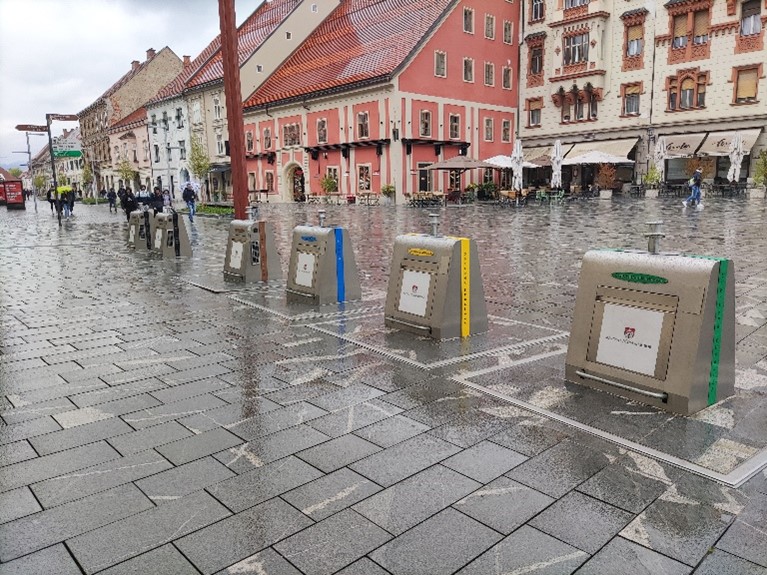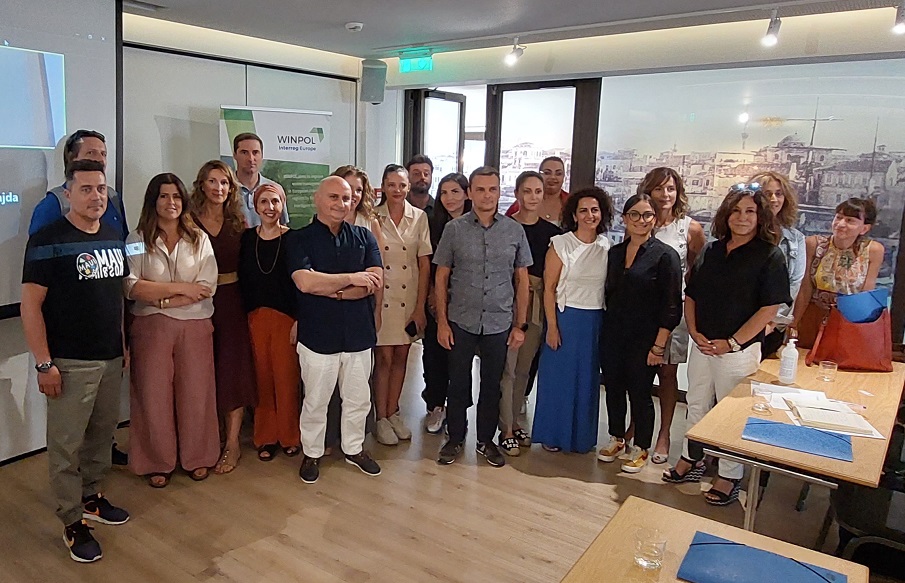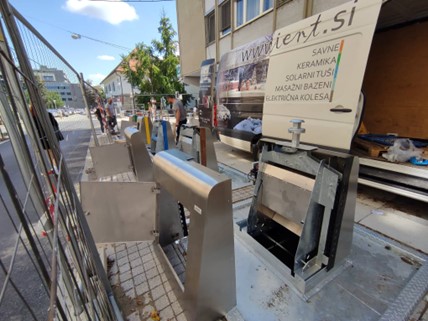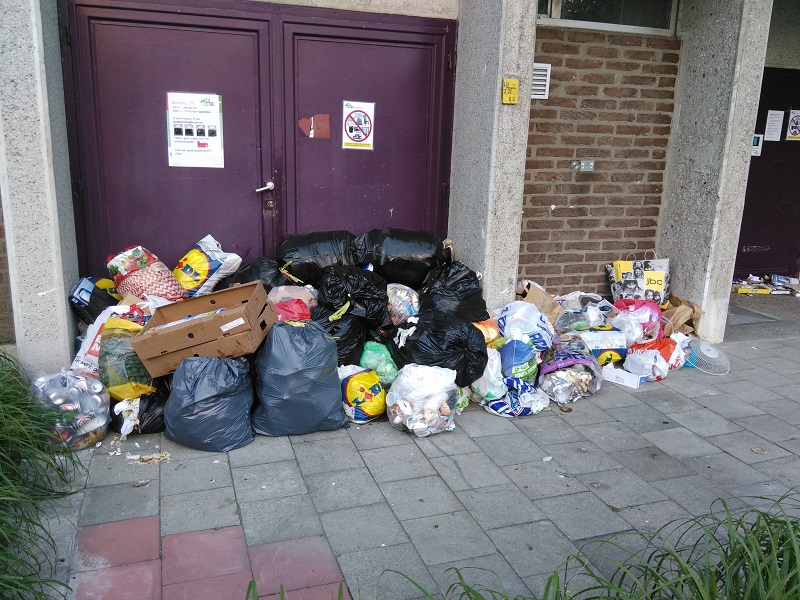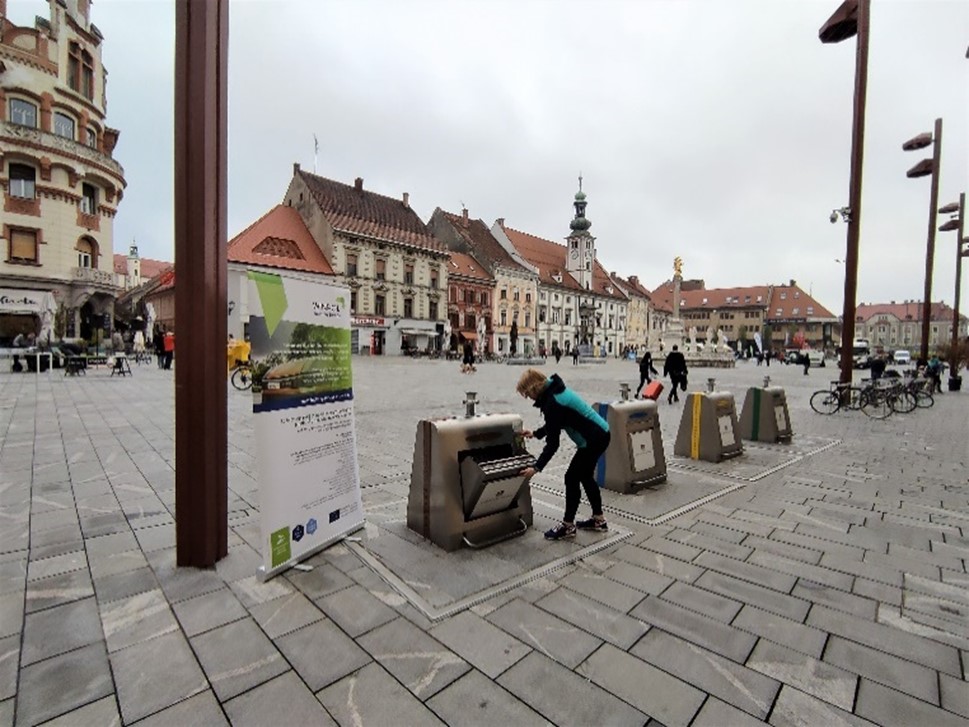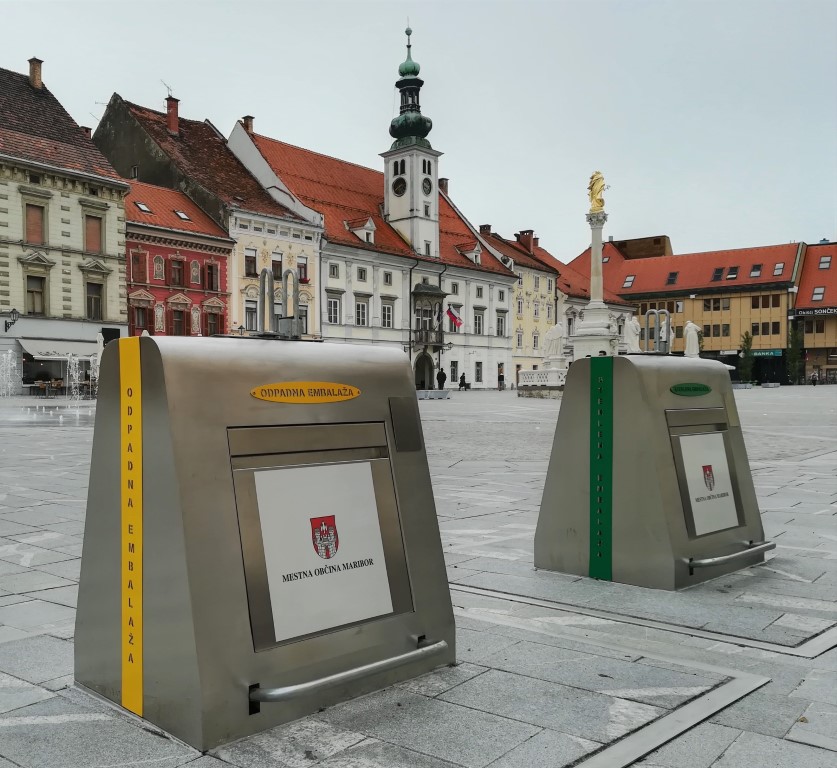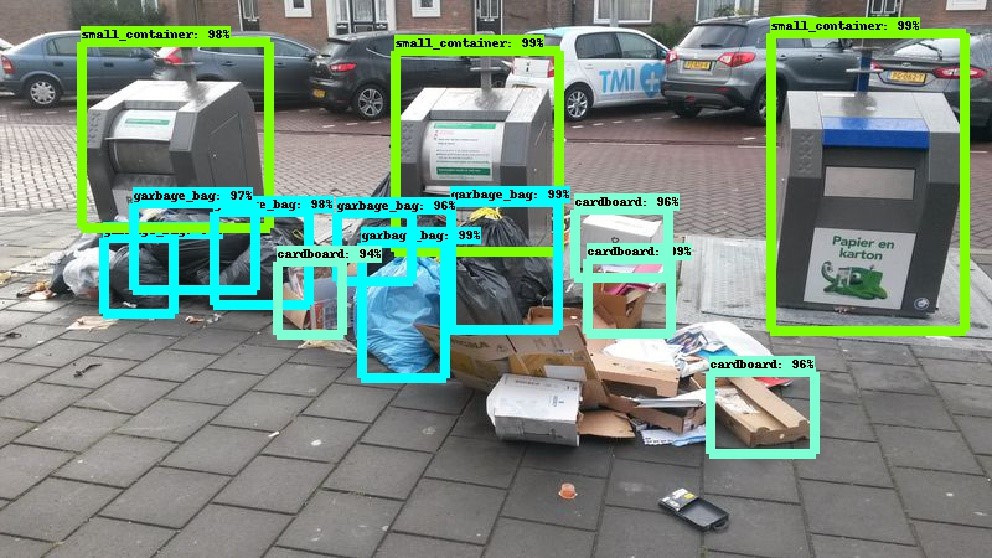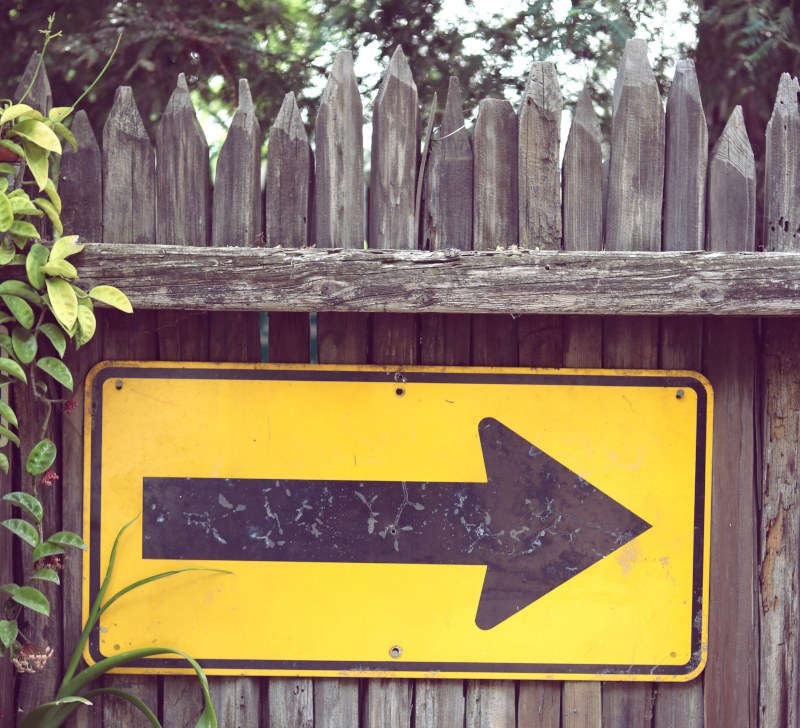The phase of “Interregional Learning” of the European-funded project WINPOL is in full swing, with partners exchanging and identifying good practices to then elaborate action plans on the transfer of relevant experiences on their territories. This time, their research brought them on 02 October 2019 to Imola. This city, located in the Italian region of Emilia-Romagna, managed to decrease its unsorted waste by 62% since 2015 (from 20,777 tonnes to estimated 8,000 tonnes in 2020). Although it is not part of the WINPOL consortium, Imola has been identified since the beginning of the project as an interesting example of how a public authority can successfully implement a new integrated waste management system and improve its performances, extensively using smart technologies.
 In 2016 the municipal administration of Imola in partnership with Hera – the utility company in charge of waste management – started to gradually reorganise the waste collection methods on the territory of the city in order to improve the quality and increase the quantity of separately collected waste. The collection system is based on “ecological islands” – drop-off points consisting of sets of street containers for six waste fractions: organic, garden, paper/cardboard, plastic/metal, unsorted (residual) waste, and glass. Except for this last one, all containers are equipped with an access control system activated by a personal card.
In 2016 the municipal administration of Imola in partnership with Hera – the utility company in charge of waste management – started to gradually reorganise the waste collection methods on the territory of the city in order to improve the quality and increase the quantity of separately collected waste. The collection system is based on “ecological islands” – drop-off points consisting of sets of street containers for six waste fractions: organic, garden, paper/cardboard, plastic/metal, unsorted (residual) waste, and glass. Except for this last one, all containers are equipped with an access control system activated by a personal card.
 Extra features have been added to the residual waste bin (a horizontal cylinder limiting the volume of the waste disposed to 22L), and to the containers for paper/cardboard and plastic/cans waste (a grid has been placed to improve the quality of the waste collected and optimise the volume of the containers). The streets in the historical city centre are served by a door-to-door collection of paper/cardboard, plastic/cans and unsorted waste. Only organic waste and glass are collected with street containers.
Extra features have been added to the residual waste bin (a horizontal cylinder limiting the volume of the waste disposed to 22L), and to the containers for paper/cardboard and plastic/cans waste (a grid has been placed to improve the quality of the waste collected and optimise the volume of the containers). The streets in the historical city centre are served by a door-to-door collection of paper/cardboard, plastic/cans and unsorted waste. Only organic waste and glass are collected with street containers.
The personal card allows the implementation of a pay-as-you-throw (PAYT) system of waste taxation whereby citizens who generate more waste and need to use the containers for unsorted waste more frequently, are charged a higher fee. On the other hand, citizens can receive a discount if they make an extra effort to separate their waste and bring it to dedicated collection centres. This is what the WINPOL partners witnessed during their visit to the Via Brenta collection centre which illustrated the PAYT system at work in Imola. The centre is reaching its full capacity and boasts a 25% increase of users since 2015, proving that citizens have fully adopted the new system. The municipality is working on opening a second centre, even more modern and including a part for reuse activities.
 The Sesto Imolese self-service collection centre is another innovative practice discovered by WINPOL in Imola. Accessible also with the card, it gives citizens the possibility to discard paper, plastic/cans and glass without going to the collection centre and still benefit from the tax reduction. An elaborated system with an alarm is operating to ensure a good functioning of the centre.
The Sesto Imolese self-service collection centre is another innovative practice discovered by WINPOL in Imola. Accessible also with the card, it gives citizens the possibility to discard paper, plastic/cans and glass without going to the collection centre and still benefit from the tax reduction. An elaborated system with an alarm is operating to ensure a good functioning of the centre.
Partners took advantage of this meeting to discuss the preparations of the second thematic seminar, focusing on innovative models for collection, prevention and recycling. Some good practices have already been identified and will be shared on 19 November 2019 in Antwerp.
The WINPOL consortium with their hosts from Imola municipality.
